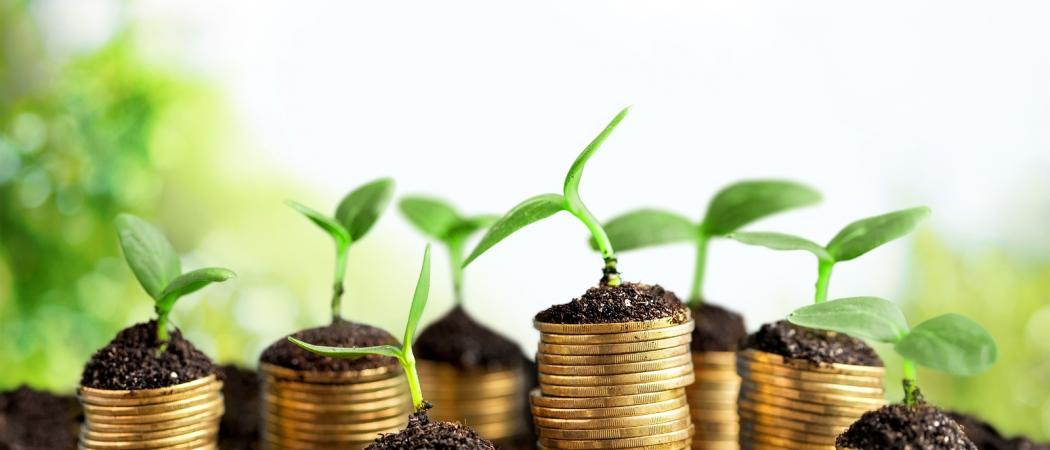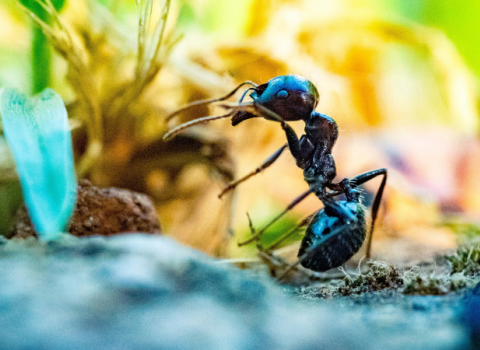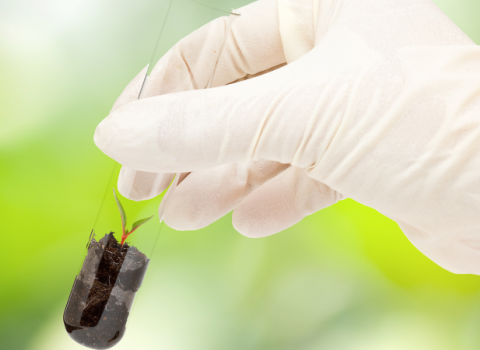Officials sound out investors on new fund to stimulate bio-based industry and blue economy

The EU is stepping up efforts to stimulate investment in the bioeconomy, sounding out investors on the opportunities and challenges of a new multi-million euro fund.
At a conference on December 6 in Brussels, European Commission and European Investment Bank officials received market views on ways the new investment vehicle could coax private capital into a sprawling sector filled with researchers and executives who retool biomass into bioplastics, cosmetics and other goods.
Launching by the end of 2018, the fund, which will include at least €100 million in EU funding, signals a shift to a sustainable economy, said John Bell, director of bioeconomy at the European Commission’s Directorate-General for Research and Innovation.
“Take this fund as a market signal: the bioeconomy is happening, it’s taking root, and we want Europe to be a leader. We’re ready to let the innovators loose,” he said.
The Commission is beginning a search early in 2018 for an independent manager to run its new investment vehicle (full title: ‘circular bioeconomy thematic investment platform’) as it looks to attract several sources of capital, including from banks, pension funds and venture capitalists to invest alongside member states and other public investors, in a large public-private pot.
The impetus for the new EU vehicle follows an analysis by the European Investment Bank, published in June, which found that, while there is money available in Europe for the research and development phase of bioeconomy projects, it is much more difficult to attract funding for the later demo and commercialisation phases.
“What the study showed us is that the bioeconomy is still not a very well-known area,” said Shiva Dustdar, head of innovation finance advisory at the EIB. “There’s a risk perception out there, so if our fund can come in as an anchor early on, it can bring in others, and that can have a big impact.”
Such a bioeconomy platform would be the first of several thematic investment platforms under the EU’s newly revamped InnovFin programme, unveiled at the Global Investment Forum in Brussels on 7 December by EU Research Commissioner Carlos Moedas and EIB Vice President Ambroise Fayolle.
Bioeconomy at crossroads
The new investment is appearing at a time when bio-based markets have reached a crossroads. Technological advances are shifting the landscape, but not speedily enough. Low government funding, investor hesitancy and low oil prices have combined to limit the growth of the industry.
Today, the complexity and novelty of many bio-based products is the main reason investors do not always come running with money. It is a tough field to penetrate for investors, said Leonie Schreve, global head of sustainable finance at ING bank. “When I look at proposals, I find they are often too small, too risky, or not made out correctly. For these reasons, I would say the EIB has a very [important] role in accelerating the education process around the bioeconomy,” she said.
Christian Kemp-Griffin said the company he runs, CelluComp, which produces paints and coatings from carrots and sugar beets, had finished a demo of its technology and now needs to raise around €30 million to sell its goods on the market.
“It’s a big funding gap,” he said. “We’ve talked to everyone from VC to governments to banks.”
Any new EU fund should not overlook the importance of time, he added. “We need accelerated schedules. You can get into a discussion with someone about financing and still be having that discussion a year later,” he said.
Fund targets
EU officials say the field has the potential to reduce reliance on fossil fuels and ease plastics pollution, among other things.
“Sustainability is becoming the active verb in the new economy,” said Bell. “We’re at the beginning of a green rush where entirely new value chains are being created.”
In the bioeconomy, resources are conserved and waste is limited. Shrimp shells get second lives as sustainable types of plastic, and sugarcane waste as new lubricants.
A fresh funding push is welcomed, said Dirk Carrez, executive director of the Biobased Industries Consortium, part of an EU public-private partnership , the BBI Joint Technology Initiative. “Because this is still seen today as a risky business,” he said. “So, you need grants, loans and guarantees to keep investments here in Europe.”
The initiative is funding a wide range of activities, such as how to turn wood residues into proteins for fish feed. Another project brings together mushroom growers and pharma executives, who seek to convert farming leftovers into biodegradable nano-carriers for drug delivery.
More funding would allow bio-based companies to grow in Europe without being acquired by larger, overseas businesses, said Alain Reocreux, special adviser to the Olmix Group, which makes new bio-products out of clays and algae.
“I think there is a real risk of foreign companies taking raw materials and know-how,” he said. “To stop this from happening, we need long-term finances.”
The Brussels conference, attended by about 135 investors, entrepreneurs and policy-makers, was the latest step in the efforts of the Commission, advised by the EIB, to get the bioeconomy fund on the road. EIB officials said they would gather the feedback offered at the conference, and take it into account in finalising plans for the fund. The next milestone will be the launch in early 2018 of a public call for fund managers interested in being selected to run the independent fund. The fund itself is due to start by the end of 2018.
For further information on the fund, or to offer your own views to the EIB, email [email protected].





 A unique international forum for public research organisations and companies to connect their external engagement with strategic interests around their R&D system.
A unique international forum for public research organisations and companies to connect their external engagement with strategic interests around their R&D system.